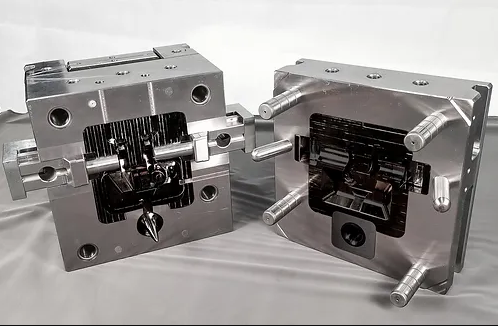Aluminum is a widely used metal due to its excellent properties such as light weight, high strength, corrosion resistance, and good electrical conductivity. However, aluminum is prone to corrosion in certain environments, which can adversely affect its performance. Therefore, it is essential to protect aluminum surfaces from corrosion through various techniques, including conversion coating. This article aims to explore effective conversion coating techniques for aluminum and their importance in protecting aluminum surfaces.
Conversion coating is a process that converts the metal surface into a corrosion-resistant layer by using a chemical reaction. The conversion coating process involves three steps, namely cleaning, activation, and coating. The cleaning process removes any oil, grease, or dirt on the surface, while the activation process prepares the surface for coating by creating reactive sites. The coating process involves the application of a conversion coating solution that reacts with the metal surface to form a thin, protective layer.
There are several types of conversion coating techniques for aluminum, including chromate conversion coating, phosphate conversion coating, and anodizing. Chromate conversion coating is a process that uses chromic acid to convert the aluminum surface into a thin film of chromium oxide. The chromium oxide layer offers excellent corrosion protection and enhances the adhesion of paint and other coatings. However, chromate conversion coating has a negative impact on the environment due to the toxicity of hexavalent chromium.
Phosphate conversion coating is a process that uses phosphoric acid to convert the aluminum surface into a thin film of metal phosphate. The metal phosphate layer offers excellent corrosion protection and enhances the adhesion of paint and other coatings. However, phosphate conversion coating has limitations in terms of adhesion to aluminum surfaces, especially in humid environments.
Anodizing is a process that uses an electrolytic solution to convert the aluminum surface into a thick, porous layer of aluminum oxide. The aluminum oxide layer offers superior corrosion protection and enhances the mechanical properties of the aluminum surface. Anodizing can also enhance the appearance of aluminum surfaces by providing a range of colors and finishes. However, anodizing is a complex process that requires specialized equipment and expertise.

The choice of conversion coating technique depends on the specific application and performance requirements. For example, chromate conversion coating is suitable for aerospace and military applications due to its excellent corrosion resistance and adhesion properties. Phosphate conversion coating is suitable for automotive and industrial applications due to its cost-effectiveness and ease of application. Anodizing is suitable for architectural and decorative applications due to its aesthetic appeal and durability.
Conversion coating is essential for protecting aluminum surfaces from corrosion and enhancing their performance. Effective conversion coating techniques such as chromate conversion coating, phosphate conversion coating, and anodizing offer various benefits in terms of corrosion resistance, adhesion, and appearance. However, the choice of conversion coating technique depends on the specific application and performance requirements. It is important to follow proper procedures and guidelines to ensure that the conversion coating process is effective and reliable.
-

- Magnesium alloy foundry parts bicycle wheel with CNC machining & surface finishing
-

- Ultralight suspension fork for MTB
-

- Integrated 3-spoke wheel for MTB with CNC machining &surface treatment
-

- Magnesium alloy bike parts & componenets for kid’s push bike
-

- OEM die-casted parts& components
-

- Popular Children’s Sports Bicycle High Quality Children’s Balance Bike Children’s Bicycle

 0086-750-5616188
0086-750-5616188 +86 13392089688
+86 13392089688 sales@zhongmei-tech.com
sales@zhongmei-tech.com







